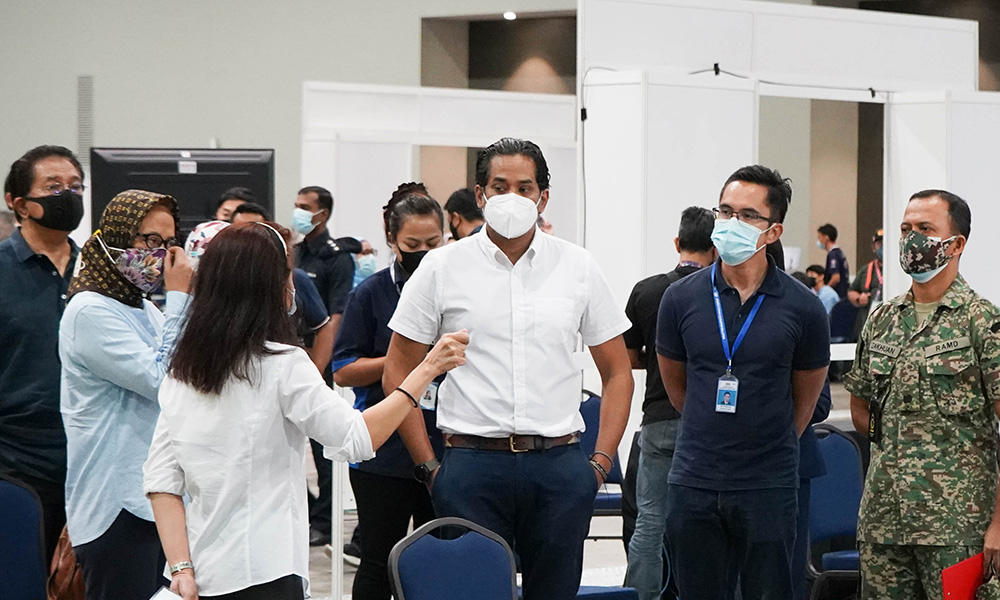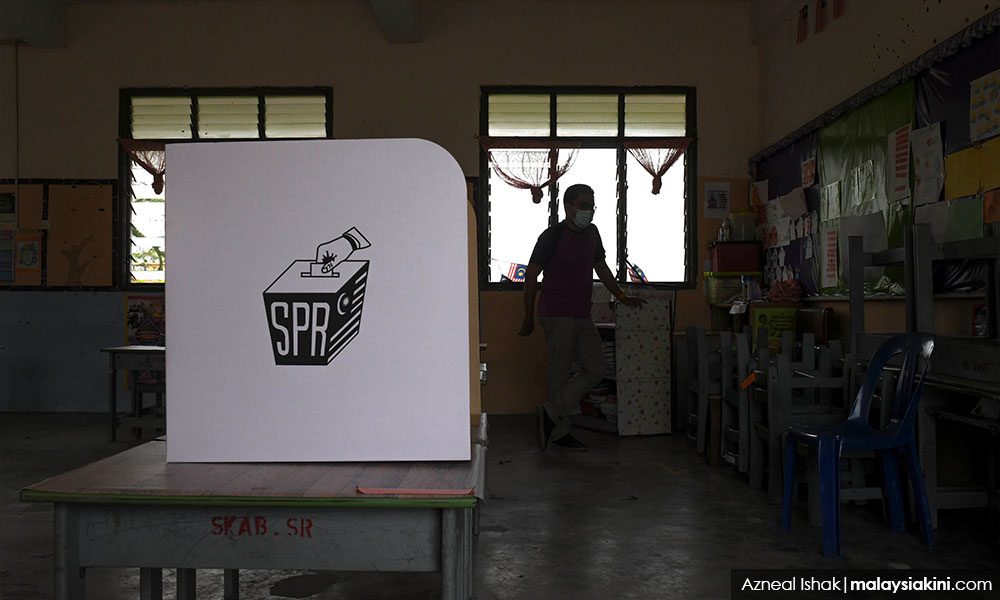I believe the most important thing we should be doing now is working together on preventing our increasing, unnecessary Covid-19 deaths. There’s work being done on this that will hopefully be shared soon.
The second most important (and deeply interrelated) thing, is to ensure better leadership for Malaysia.
This latest phase of the unending Sheraton Move plunges us back into a political and constitutional crisis, especially after Umno president Ahmad Zahid Hamidi’s announcement yesterday.
Unless someone in Parliament magically succeeds where they have all failed for months, and reaches some sort of parliamentary consensus, then we can expect to be stuck in limbo again. Only this time, political limbo and a leadership vacuum is going to mean more Covid-19 deaths.
Simply put, the first step to escape this death-trap box we are in requires us to think outside the box.
Let’s look at three options:
Option 1: A ‘unity’ government.
Option 2: A Mageran-like council (that excludes Dr Mahathir Mohamad).
Option 3: Electronic General Elections (EGE).
Under all three options, I believe the most vital factor is to empower public policy experts (instead of politicians) as the final and key decision-makers on all matters regarding Covid-19 - including public health, MCO management, and economic welfare.
Option 1: ‘Unity’ government
I put ‘unity’ in quote marks because technically, a ‘unity’ government is not different in any key way than a coalition government - the only difference is who is in the coalition. Similarly, there is no such thing as an ‘interim’ government - all governments are interim ones, so to speak.
Nevertheless, a unity government might apply in our current context to describe a cabinet with ministers from parties that are not traditionally allies. As an exercise, I made a very rough sketch of what such a cabinet might look like here.
In the 2007 Ijok by-election, I remember photographing Khairy Jamaluddin during the campaign. His behaviour struck me as ‘ape-like’.

However, in 2021, he is possibly the only parliamentarian out of all 220, who has a good track record of fighting Covid. Vaccination is perhaps the only truly functioning arm of the government’s anti-Covid work, and while imperfect, Khairy has done a relatively good job in keeping his nose out of politics and focusing on the work that matters.
Thus, on the basis of meritocracy, he is probably my favoured candidate for a new “interim” prime minister. Given Dr Dzulkefly Ahmad’s performance as previous health minister, I believe he can also be considered for a top post.
While I would prefer an entire cabinet or similar decision-making body to consist of public policy experts with zero politicians, some of my friends think this overly unrealistic. Thus, my little list limits itself to some seven public policy experts for key cabinet posts.
For the rest, I have mostly taken parliamentarians who served in either the current cabinet or the previous one.
This list is just an example of course, and a proof of concept. Given no sustainable solutions appear to be emerging from parliamentarians alone, perhaps this type of cabinet is something civil society and the public can together encourage parliamentarians to work towards as a way out of this mess. Think of it as a new ‘whole of society’ approach to solving political problems.
Option 2: Jodi, a Mageran-like council
After the 1969 race riots, Abdul Razak Hussein formed Mageran (the National Operations Council). This was an emergency administrative body which governed the country in lieu of an elected government.
Membership of Mageran consisted of leaders of major political parties and key members of the nation’s security and administrative apparatus. This was somewhat appropriate given that the nation was faced with the threat of violence.
In 1969, somewhere between 200 to 600 Malaysian lives were lost in the race riots. This week, in 2021, the number of deaths due to Covid-19 will exceed 10,000 - and that’s probably only counting the ones who died directly of Covid-19. Surely this is a worse emergency?
I recommend the formation of what I call the Interim Emergency Operations Council (Jawatankuasa Operasi Darurat Interim - Jodi).
Just as Mageran involved military and police leaders in tackling a security crisis, Jodi should be led by public health experts in order to tackle a public health crisis. Jodi should also include experts in the economy and economic aid, in order to safeguard the economic security of Malaysians in these extremely difficult times.
Jodi should be the final decision-making power in all matters related to Covid-19, including administration of the public health system and allocation of resources thereto; MCO planning, management, and enforcement; economic aid; and perhaps education.
In terms of legal standing, there are a number of ways Jodi can be commissioned into being: it can be instituted by the incumbent prime minister (but must not be made into another toothless and useless advisory council); it can be instituted by an incoming prime minister; it can be instituted by Parliament in lieu of a prime minister; or it can perhaps be instituted by the Yang di-Pertuan Agong using some sort of emergency provisions in the event of a complete absence of parliamentary consensus.
Jodi can be formed in lieu of a ‘normal’ cabinet, or it can be formed alongside one - as long as effective and complete decision-making powers in all Covid-19 matters rests ultimately and decisively with Jodi.
As a quick note, my personal view is that while Mahathir is one of the only people talking about a Mageran-like body, I feel he should most certainly be excluded from such a body. I think Malaysia has had quite enough of Mahathir.
Option 3: Electronic General Elections
The final option involves the possibility of electronic general elections (EGE) - physical paper-based general elections being of course totally out of the question.
In these past few weeks, Bersih was originally scheduled to conduct simulated recall elections. In preparation for this, they worked together with a blockchain technology company that claims to allow reliable, secure, and verifiable electronic voting from mobile phones.

There is no doubt an endless list of technical, procedural, and ethical questions that can be raised here. But I posit the possibility that enough of these questions may have satisfactory answers.
My preliminary inquiries also suggest (yet to be confirmed) that legally speaking, no big legal or constitutional changes need to be made in order to switch from paper voting to electronic voting. Research on this matter is ongoing.
Electronic general elections are an imperfect solution but should be considered as one of the options on the table to break this life-threatening impasse we find ourselves in. There is a chance that at the cost of some short-term pain, it will deliver some much-needed medium- and long-term solutions for Covid-19 and other national problems.
In this scenario, I would recommend that the people best suited for the Jodi idea above or who believe in that type of leadership contest the elections directly.
The above are all radical ideas. It is my fervent belief, however, that our lack of radicalness and urgency is what is causing us to remain stuck in this mess - a mess that costs hundreds of lives each day. It is time to be bold. - Mkini
NATHANIEL TAN believes it is insane to act sane in the face of insanity. Twitter: @NatAsasi, Clubhouse: @Nathaniel_Tan, Email: nat@engage.my. #BangsaMalaysia #NextGenDemocracy.




No comments:
Post a Comment
Note: Only a member of this blog may post a comment.